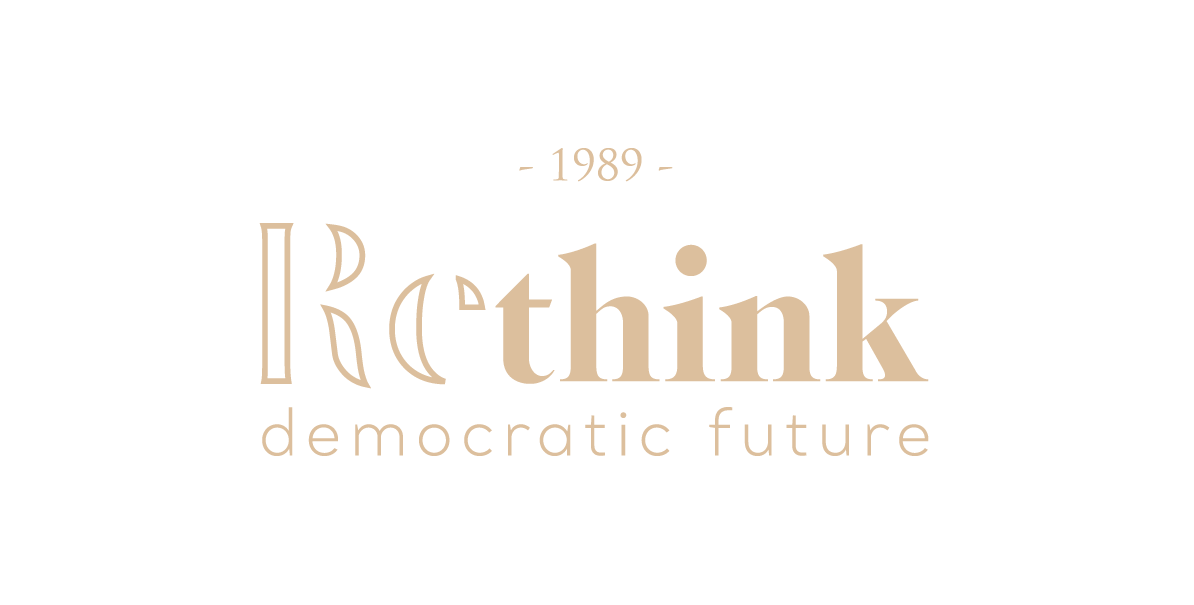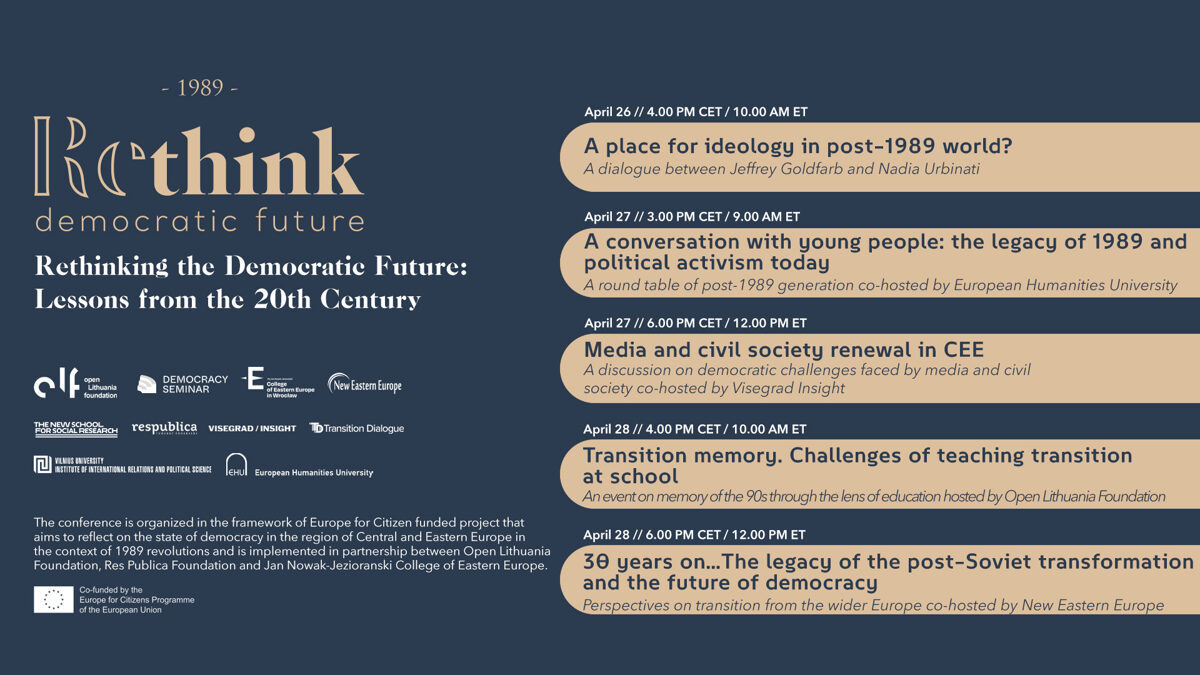EVENTS:
April 26
A place for ideology in post-1989 world?
The dialogue focused on various questions, such as: Is 1989 the point of the beginning of post-truth populism? How the role of ideologies transformed in the past 30 years: from marketplace of ideas towards subversion of the democratic rule? What does it mean to think and act politically beyond ideological divide? National-populism as backlash against technocratic politics and what covid-19 epidemic revealed about the belief versus evidence-based politics?
April 27
A conversation with young people: the legacy of 1989 and political activism today
3.00 PM CET / 09.00 AM ET
Students from Bard College Berlin (Germany), Central European University (Austria/Hungary), American University in Central Asia (Kyrgyzstan), European Humanities University (Lithuania/Belarus) and Smolny College (Russia) will share perspectives on the legacy of 1989 and the transforming nature of political action, as perceived today.
April 28
Transition memory
4.00 PM CET / 10.00 AM ET
This discussion is inspired by the preliminary results of the project "Transition Dialogue 2019-2021. Dealing with change in democratic ways". It aims to explore various perspectives of the transition memory and reflect on the difficulties of teaching transition at school. The participants will discuss the most common challenges of teaching about the transition period and the importance of the teacher's role in it.
Participants:
Donatas Puslys, journalist, head of Media programme at Vilnius Institute for Policy Analysis (Lithuania)
Juozas Malickas, teacher at the North Lyceum (Lithuania)
Louisa Slavkova, director of the Sofia Platform Foundation (Bulgaria)
Media and civil society renewal in CEE
6.00 PM CET / 12.00 PM ET
The discussion will be dedicated to the CEE media and civil society response to the democratic backsliding threats. In particular, it will touch upon the potential of media projects restarting in the digital age, a new generation of civil society actors, as well as reflect on the role of memory in shaping the future of civil society. Our session will also relate to two Visegrad Insight reports: "Rethinking the Democratic Future" and "Information Sovereignty. Scenarios for Central Europe".
Participants:
Hanna Liubakova, Fellow at the Atlantic Council
Ágnes Urbán, Associate Professor and Chair of the Infocommunications Department at the Corvinus University of Budapest (TBC)
30 years on…The legacy of the post-Soviet transformation and the future of democracy
6.00 PM CET / 12.00 PM ET
The panel aims to critically assess the changes that have taken place in Eastern Europe since the fall of the Soviet Union. The panelists will take a look at developments in their countries since independence and discuss what lies ahead in democratic developments for the next generation. The panel will feature an overview of the transformation period and then discuss specific case studies, with a focus on the future.
Overview of post-Soviet transformation: Kate Graney, Professor and author Skidmore University.
On Ukraine - Olga Onuch, University of Manchester
On Georgia - Bakar Berekashvili, Political scientist
On Moldova - Denis Cenusa, Political scientist
Moderator: Adam Reichardt, editor-in-chief of New Eastern Europe
Participation: throughout all three conference days 212 people from 36 different countries have joined the events: Albania (1), Austria (2), Belgium (5), Bulgaria (5), Cyprus (1), Croatia (1), Czech Republic (8), Estonia (2), France (6), Germany (12), Hungary (11), Kosovo (1), Lithuania (37), Latvia (1), North Macedonia (1), Netherlands (7), Poland (40), Portugal (1), Romania (6), Slovakia (6), Slovenia (1), Sweden (1), United Kingdom (9) and other countries (47).

